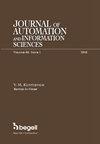SCRUM柔性方法论条件下信息技术领域项目管理的信息模型
Q3 Engineering
Journal of Automation and Information Sciences
Pub Date : 2021-03-01
DOI:10.34229/1028-0979-2021-2-12
引用次数: 2
摘要
模棱两可的情况会在任何方面影响项目的进展。它们在本质上是不可预测的,需要考虑相当新的和复杂的因素,这些因素在不同程度上决定了项目的有效性。本文探讨了在信息技术领域运用情景分析构建项目管理信息模型的问题。在灵活的Scrum方法条件下应用情境方法的知识和能力将为项目经理提供机会,从根本上改变项目中的情况,并实现每项任务的积极表现。作者提供了在灵活的Scrum方法的实施中选择项目管理中最优解决方案的过程的形式化演示。本文研究了项目中任务、目标、情境之间的因果关系。项目中的管理决策是在研究任务如何确保实现目标的基础上实施的。这考虑到了灵活Scrum方法的所有特性。给出了在构造情景图的基础上进行最优决策的步骤。建立了一套有助于克服危机局势的解决办法,并探讨了可能的替代办法。在实施灵活的Scrum方法时使用情景分析,通过综合专家评估方法和智能管理方法,为项目管理提供了一种全面的方法,这些方法将支持在现有财务和时间资源限制下可能发生冲突的危机情况下的决策。开发的信息模型应用的结果是通过减少项目中的时间损失和财政资源的超支来提高项目的效率。本文章由计算机程序翻译,如有差异,请以英文原文为准。
INFORMATION MODEL OF PROJECT MANAGEMENT IN THE FIELD OF INFORMATION TECHNOLOGIES IN THE CONDITIONS OF SCRUM FLEXIBLE METHODOLOGY
Ambiguous situations affect the progress of the project in any area. They are unpredictable in nature and require consideration of fairly new and complex factors that to varying degrees determine the effectiveness of the project. The article considers the use of situational analysis in building an information model of project management in the field of information technologies. Knowledge and the ability to aply the situational approach in the conditions of flexible methodology Scrum will provide opportunities to the project manager to change a situation radically in the project and to achieve the motivated performance of each task. The authors offer a formalized presentation of the procedure for selecting the optimal solution in project management in the implementation of a flexible Scrum methodology. The paper investigates the causal relationship between tasks, goals, situations in the project. Management decisions in the project are implemented on the basis of a study of how the task ensures the achievement of the goal. This takes into account all the features of the flexible Scrum methodology. The procedure of making the optimal decision on the basis of construction of the diagram of situations is offered. A set of solutions that help to overcome the crisis situation is established, and possible alternatives are explored. The use of situational analysis in the implementation of the flexible Scrum methodology provides a comprehensive approach to project management by synthesizing methods of expert assessments and intelligent management methods that will support decision-making in crisis situations of possible conflicts with existing constraints on financial and time resources. The result of the application of the developed information model is to increase the efficiency of the project by reducing the loss of time in the project and overspending of financial resources.
求助全文
通过发布文献求助,成功后即可免费获取论文全文。
去求助
来源期刊

Journal of Automation and Information Sciences
AUTOMATION & CONTROL SYSTEMS-
自引率
0.00%
发文量
0
审稿时长
6-12 weeks
期刊介绍:
This journal contains translations of papers from the Russian-language bimonthly "Mezhdunarodnyi nauchno-tekhnicheskiy zhurnal "Problemy upravleniya i informatiki". Subjects covered include information sciences such as pattern recognition, forecasting, identification and evaluation of complex systems, information security, fault diagnosis and reliability. In addition, the journal also deals with such automation subjects as adaptive, stochastic and optimal control, control and identification under uncertainty, robotics, and applications of user-friendly computers in management of economic, industrial, biological, and medical systems. The Journal of Automation and Information Sciences will appeal to professionals in control systems, communications, computers, engineering in biology and medicine, instrumentation and measurement, and those interested in the social implications of technology.
 求助内容:
求助内容: 应助结果提醒方式:
应助结果提醒方式:


